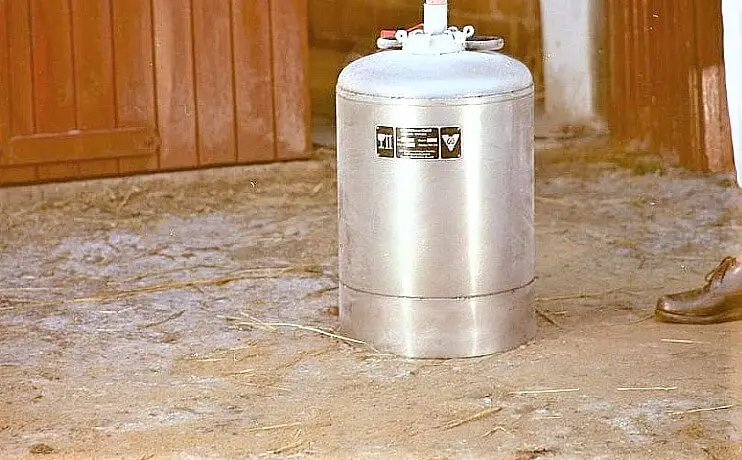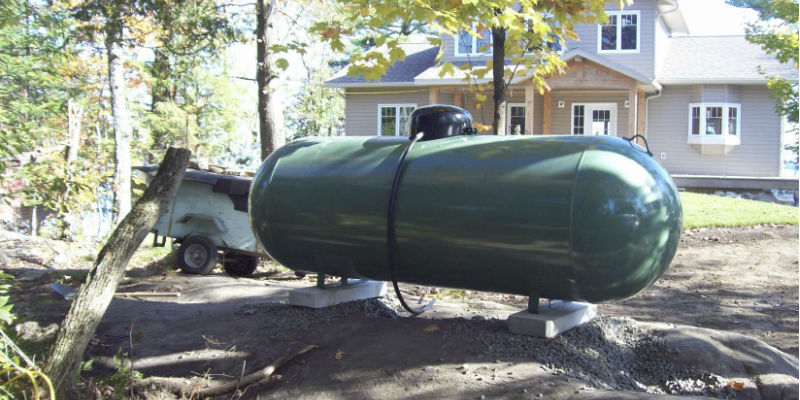Note: This article may contain affiliate links, which means if you make a purchase following our links won’t cost you extra, but we may earn a commission. Learn more
Liquid propane gas is a type of fossil fuel that is extracted from the ground and then refined into a usable product. It’s a type of petroleum gas that is frequently used as a fuel source. It is odorless, colorless, and tasteless, and is commonly used in grilling and camping.
It is used in a variety of applications, including heating, and cooking. Propane is also used as a fuel source for some vehicles and as heating fuel. Liquid propane gas is a highly efficient fuel source, and it is relatively inexpensive to purchase and use.
Type of Propane
Propane is a type of liquefied petroleum gas (LPG) that is used as a fuel in a number of different applications. It is typically stored in pressurized tanks and is released into a combustion chamber where it is ignited, providing a clean and efficient source of energy.
Propane is a highly versatile fuel that can be used for a wide range of applications, including heating, cooking, hot water, and even powering vehicles. It is also relatively inexpensive and easy to store and transport.
There are a few different types of propane, including:
1. Refined propane: This is the most common type of propane and is typically used in residential and commercial applications. It is a by-product of natural gas processing and oil refining.
2. Isobutane: This type of propane is a little less common but is often used in camping and recreational vehicles. It is a by-product of petroleum refining.
3. Propylene: This is the least common type of propane but has a variety of industrial uses. It is a by-product of ethylene production.
Propane is a clean and efficient fuel that offers a number of advantages over other energy sources. It is an ideal choice for a wide range of applications, both residential and commercial.
How Does Liquid Propane Turn to Gas?

When you open a can of soda, the pressure inside the can is released. This sudden decrease in pressure causes the liquid inside to turn into gas. The same process occurs with liquid propane.
Liquid propane is stored under high pressure in tanks. When you open the valve on a tank of propane, the pressure is released and the liquid turns into gas. This process is called vaporization.
Vaporization happens because liquids are made up of molecules that are constantly moving around. When you decrease the pressure on a liquid, the molecules have more space to move around and they turn into gas. Liquid propane has a boiling point of -42 degrees Celsius (-44 Fahrenheit).
This means that it will turn into the gas at any temperature above -42 degrees Celsius. So, even on a cool day, your tank of propane will slowly be turning into gas!
What is Liquid Propane Gas Used for?
Liquid propane gas has a multitude of uses both domestically and industrially. Most people are familiar with its use in home heating and cooking, but did you know that it is also used in farming, construction, and even in some cars?
On the farm, liquid propane is used as a fuel for irrigation pumps, grain dryers, and in livestock confinement heaters. In the construction industry, it is used in heaters, welding torches, and as a refrigerant in air conditioners.
In the automotive industry, liquid propane is used as fuel in some race cars and in forklifts. It is also used in home heating, cooking, water heating, and clothes drying.
Liquid propane gas is a very versatile fuel that has a wide range of uses. It is a clean-burning fuel that is efficient and economical.
How propane works
Liquid propane gas is a type of fuel that can be used for a variety of purposes. It is commonly used as a fuel source for grills and other outdoor cooking appliances, but it can also be used to power vehicles and heat homes. Liquid propane gas is cheaper than gasoline and burns cleaner, making it an attractive option for those looking to save money or reduce their carbon footprint.
What is Liquid Propane Vs Natural Gas?
If you’re considering making the switch from natural gas to liquid propane (LP) for your home, there are a few key things to know. For starters, LP is a fossil fuel, just like natural gas. It’s odorless, colorless, and non-toxic, but it does have a slightly higher energy density than natural gas.
This means that you’ll need less LP to achieve the same heating results as natural gas. When it comes to cost, LP is typically more expensive than natural gas. However, this price difference can vary depending on market conditions.
In terms of environmental impact, both LP and natural gas are considered clean burning fuels. So, what are the main differences between these two fuels? Here’s a quick rundown:
LP is stored as a liquid whereas natural gas is stored as a compressed Gas. This means that LP takes up less space than an equivalent amount of natural gas. As mentioned earlier, LP has a higher energy density than natural gasses.
So for every gallon of propane, you get about 2½ times more energy than 1 cubic foot of methane (natural Gas). Propane also burns hotter than most other common household fuels like wood, kerosene, or oil. Because propane burns cleaner, it leaves fewer deposits behind in appliances and produces significantly fewer carbon monoxide (CO) emissions 100-pound tank of liquid propane will last you about 17 days if used at full capacity 24 hours per day.
Read More: Can a Gas Dryer Run on Propane
Is Propane a Liquid Or a Gas?
Propane is a gas at standard temperature and pressure (STP). It is stored as a liquid under high pressure in cylinders or tanks. When released from the cylinder, it turns into a gas and can be used for cooking, heating, or powering vehicles.
Propane Gas Vs LPG
When it comes to propane gas vs LPG, there are a few things that you need to know. First of all, propane is a type of liquefied petroleum gas (LPG) that is derived from natural gas processing and crude oil refining. It’s used in a variety of applications, including grilling, home heating, and engine fuel.
On the other hand, LPG is a mixture of hydrocarbon gases that are used as fuel in many industries. It’s also known as autogas or liquid propane gas. So, what’s the difference between propane and LPG?
Well, for starters, propane is heavier than air while LPG is lighter than air. This means that when there’s a leak, propane will tend to sink and collect in low-lying areas while LPG will rise and dissipate quickly. Propane also has a higher boiling point than LPG so it can be stored under pressure without becoming a vapor.
Lastly, propane burns cleaner than LPG and produces less carbon monoxide when combusted.
Where to Buy Liquid Propane?
When it comes to liquid propane, there are a few different places that you can buy it from. Here are a few of the most popular options:
1. Hardware Stores
One of the most common places that people buy liquid propane is from their local hardware store. This is because hardware stores typically carry all of the necessary supplies for home improvement projects, including propane.
2. Online Retailers
Another option for buying liquid propane is through online retailers. There are many online stores that sell propane, and they usually offer competitive prices. Plus, you can often find discounts and coupons online that can help you save even more money on your purchase.
3. Propane Dealerships
If you want to buy liquid propane in bulk, then your best bet is to visit a propane dealership. These businesses specialize in selling propane, and they usually have very competitive prices.
However, keep in mind that you will likely need to have a storage tank on-site in order to take advantage of these deals.

Is Liquid Propane the Same As Propane Gas?
No, liquid propane is not the same as propane gas. Propane gas is a hydrocarbon, meaning it is composed of both nitrogen and chlorine. Liquid propane, on the other hand, is composed only of nitrogen.
The two substances have different properties and use. Propane gas is used as a fuel for grilling and camping, while liquid propane is used as a refrigerant.
Is Propane Gas the Same As Gasoline?
No, propane gas is not the same as gasoline. They are both made of hydrocarbons, but propane gas has a lower boiling point than gasoline. This means that propane gas will evaporate more quickly than gasoline, making it less likely to cause engine knocking or other problems.
Propane gas is also less flammable than gasoline, so it is safer to use in cars and trucks.
Final Word
Liquid propane gas is a type of liquefied petroleum gas (LPG) that is derived from natural gas processing and oil refining. It is commonly used as fuel for vehicles, home heating, cooking, and camping. Liquid propane gas has a number of advantages over other fuels, including its clean-burning properties and its relatively low cost.
